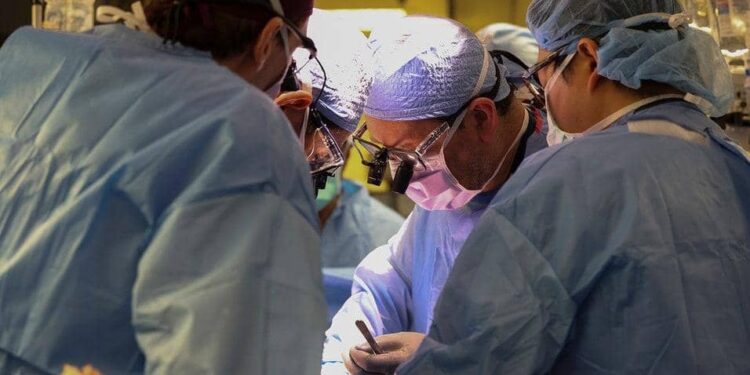By Enyichukwu Enemanna
The Food and Drug Administration (FDA) of the United States has cleared biotech companies to carry out clinical trials of their gene-edited pig kidneys for human transplants, two companies said on Tuesday.
United Therapeutics and eGenesis have been working since 2021 on experiments implanting pig kidneys into humans.
Advocates are optimistic that the approach will help address the severe shortage of organs in the country.
Recent research indicates that over 100,000 people in the United States are awaiting transplants, including more than 90,000 in need of kidneys.
The approval granted to United Therapeutics, announced on Monday, allows the company to advance its technology towards a licensed product upon the success of the clinical trial.
United Therapeutics’ Executive Vice President, Leigh Peterson, applauded the study authorisation, describing it as a “significant step forward in our relentless mission to expand the availability of transplantable organs.”
The trial will initially enrol six patients with end-stage renal disease before expanding to as many as 50, United Therapeutics said in a statement.
The first transplant is expected in mid-2025.
Meanwhile, rival company eGenesis said it had received FDA approval in December for a separate three-patient kidney study.
“The study will evaluate patients with kidney failure who are listed for a transplant but who face a low probability of receiving a deceased donor offer within a five-year timeframe,” the company said.
Xenotransplantation, transplanting organs from one species to another is believed to be crucial in meeting healthcare needs but has posed significant scientific challenges.
Early experiments in primates failed, but advances in gene editing and immune system management have brought the field closer to reality.
Research shows that pigs have emerged as ideal donors: they grow quickly, produce large litters, and are already part of the human food supply.
United Therapeutics said trial patients would be monitored for life, assessing survival rates, kidney function, and the risk of zoonotic infections and diseases that jump from animals to humans.


































